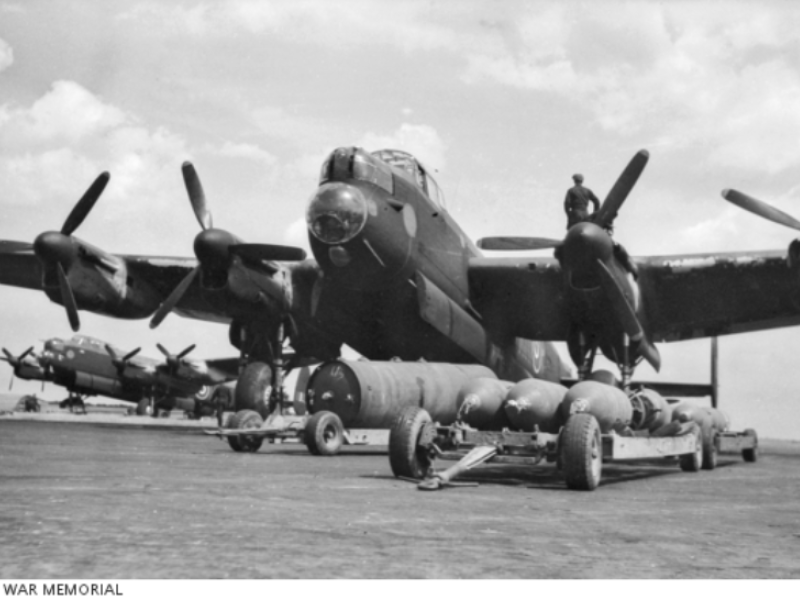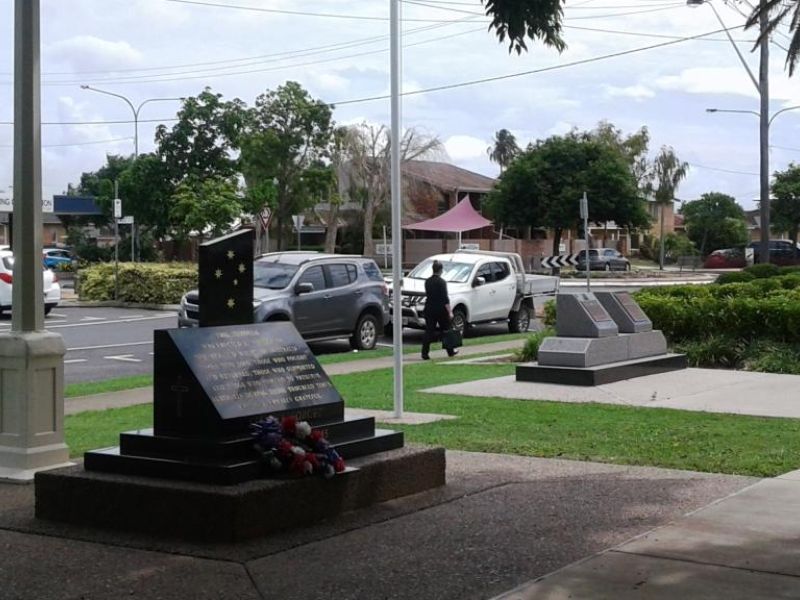Flight Sergeant Colin Eric Mengel, No. 12 Squadron (RAF)
Colin Mengel was born on 29 July 1924, one of three sons to Arthur and May Mengel of Mackay, Queensland. Known as “Col” to his family and friends, Mengel was a gifted student.
In 1939, he passed his junior public examinations, achieving first-class results in arithmetic, algebra, geometry, and bookkeeping. At 17, he moved to Brisbane to work as a clerk in the Stamp Duties Office. In 1942, he served as a cadet in 3 Wing of the 56th Squadron of the Air Training Corps.
He was known as a country boy with a great sense of humour, who, like his brothers Alf and Ray, loved telling jokes.
Mengel enlisted in the Royal Australian Air Force at the Number 3 Recruitment Centre in Brisbane on 4 December 1942, and on 10 September 1943, sailed for Europe, arriving in England in October 1943. In August 1944, he was posted to Royal Air Force Number 12 Squadron in Lincolnshire.
Number 12 Squadron flew Avro Lancasters on bombing raids over Germany and occupied Europe. Mengel served in this unit as a wireless operator and air gunner.
He was promoted on several occasions by February 1944 was flight sergeant.
On the 23rd of September 1944, Mengel took off aboard Lancaster NG116 on a bombing raid to Neuss, near Düsseldorf in Germany. At about 10:30pm, his plane was struck by anti-aircraft flak fire near the German–Netherlands border and burst into flames. It crashed in a wooded area near the German town of Aldekerk, its wreckage strewn over a wide area. All seven of the crew were killed.
At the time of the tragedy, Allied authorities were unsure of their fate and reported Mengel and his crew as missing in action. This began a period of terrible uncertainty for Mengel’s family and friends. Alex Ross, a workmate in Brisbane, wrote to his family, “Col is always a gentleman and of a cheery nature. I know that all who know Col, especially his workmates, wish him a safe return.”
Mengel’s father, desperate for any news about his son, wrote to the authorities that, “Any details, however small, as to the fate of the plane of the sons we loved and cherished, would be some consolation and would be appreciated.”
It was not until late 1945, after the war was over, that Mengel’s family and friends received the notice that Colin Mengel was officially presumed to have been killed in the flying battle over Germany.
He was 20 years old, and had been with Number 12 Squadron for less than a month.
Wing Commander Stockdale of Number 12 Squadron wrote to Mengel’s mother that “Although a comparatively new member of my Squadron, Flight Sergeant Mengel had become very well-liked by all with whom he had come into contact, and I had every confidence in his courage and ability”.
Back home in Australia, a street near where his parents lived is now called Mengel Street in honour of his sacrifice.
David Sutton, Historian, Military History Section
Image: Lincolnshire, England. C. 1944-07. An Avro Lancaster Heavy Bomber Aircraft

 Australian War Memorial
Australian War Memorial